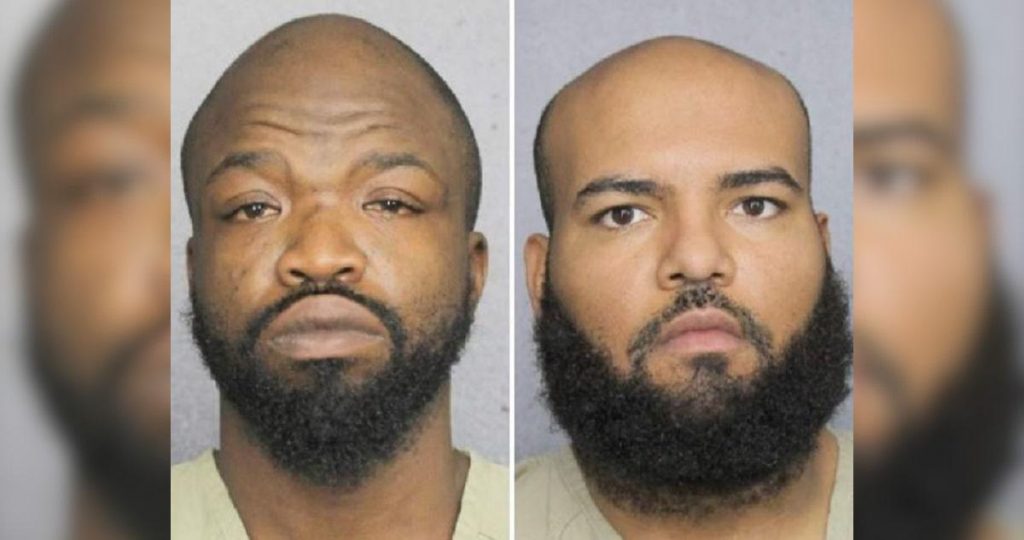The United States has announced that they have made three arrests connected to a dark web drug trafficking case involving opioids. Two Suspects, Olatunji Dawodu and Luis Miguel Teixeira-Spencer, are alleged to have operated the dark web market account “johncarter7.” While, Alex Ogando, allegedly operated the dark web market account “PolarSprings.”
Investigation into darkweb opioid traffickers, lead law enforcement to identify Spencer and Dawodu as the alleged owners of the johncarter7 vendor account. According to a criminal complaint, while investigating the johncarter7 account, investigators found “contacts” between Spencer, Dawodu, Ogando, and a fourth person that was referred to as “Individual #1.” Investigators were able to review the information on Dawodu’s iCloud account, this showed a number of financial transactions between Dawodu and Ogando.
Investigators certainly know the identity of Individual #1; they say that they found Individual #1’s fingerprint on a package that was sent by a different dark web opioid vendor. This vendor, “PolarSprings,” was active on a lot of dark web markets, which include Wall Street Market and Empire Market. Vendor PolarSprings sold pills pressed with fentanyl. On Empire Market, PolarSprings had more than 7,000 sales. PolarSprings had accounts on Deep Sea Market, Icarus Market, and ToRReZ Market, where he sold opiooids.
Data was extracted from the Wall Street Market servers by the FBI. This data was used to identify records related to the vendors being investigated. These records included bitcoin addresses used to pay fees required by WSM. The records showed that the PolarSprings account paid a bond of $200 on March 23, 2019.
Investigators used blockchain analysis, to locate the owner of the bitcoin address. The FBI discovered that the owner of the address was a bitcoin trader. The Bitcoin trader agreed to meet the FBI and agreed to provide the investigators with information as a Confidential Human Source (CHS #1). The FBI had previously identified the trader as part of a different investigation and stated that they provided investigators useful information in the past. According to the FBI the individual “hopes to receive leniency regarding potential prosecution” in exchange for cooperating with investigators.
The bitcoin trader reviewed text messages on their mobile device for information about transactions that occurred on the day of the PolarSprings vendor bond payment. They found a close match. The trader reviewed a picture of Ogando and recognized him as someone he traded with in the past.

The FBI received authorization to monitor Ogando’s internet connection On February 2, 2021, the FBI used a pen register/trap and trace (“PRTT”) device to monitor Ogando’s Verizon service at his residence in Providence, Rhode Island. Data received from the PRTT showed two connections between the IP address at the Ogando residence and Tor relays.
On February 23, 2021, law enforcement obtained a search warrant for Ogando’s residence. During the the raid, they seized $350,000 in U.S. dollars, which was “consistent with Ogando’s involvement in narcotics trafficking,” FBI Special Agent Evan Kalaher wrote.
The owner of the building advised the FBI that the apartment above Ogando’s was currently under construction. The FBi then conducted a “protective sweep of the apartment to ensure the safety of law enforcement officers who were executing the warrant in the apartment below.” During the sweep, law enforcement observed evidence that the apartment had been used as a staging area for opioid distribution.
In the apartments the FBI found:
- a vacuum sealer
- latex gloves
- USPS flat rate packaging envelopes
- envelopes
- 1,770 grams worth of pressed fentanyl pills
- USPS Priority Mail envelopes with pills that tested positive for fentanyl.
Government officials make statements on the Opioids cases
The use of sophisticated technology and virtual currency may raise unique challenges to investigating these cases, but this investigation demonstrates that law enforcement can nonetheless root out the sale of dangerous opioids on the darknet. We will not let the use of sophisticated cyber technology impair our ability to combat the problem of opioid abuse.
Acting U.S. Attorney Michael Sherwin
The U.S. Postal Inspection Service is committed to shining a light on that trafficking fentanyl and other illicit drugs on the dark web. Postal Inspectors, armed with advanced technology, digital forensics, and data analytics, continue to work closely with law enforcement partners to thwart those using the U.S. Mail in furtherance of their crimes.
Inspector in Charge Peter R. Rendina, U.S. Postal Inspection Service, Washington Division.
